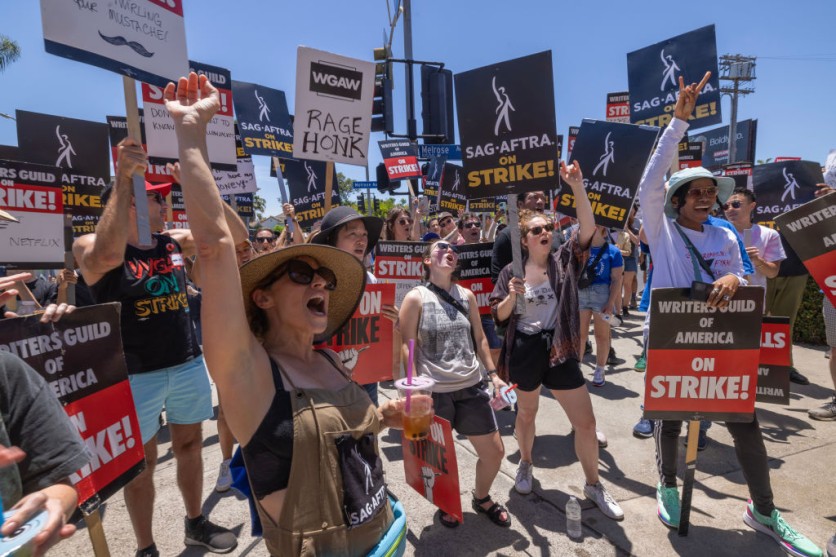The American film and television industries are at a halt as Hollywood actors go on strike for the first time in 43 years.
Despite claiming that AI posed an existential danger to the creative industries, the SAG-AFTRA actors union was unable to get improved AI safeguards for its members. The rising concern about how AI may affect the entertainment sector has led to this strike.

The Problem With AI
Lead negotiator for SAG-AFTRA, Duncan Crabtree-Ireland, voiced his displeasure with producers' AI suggestions, which included studios scanning background actors' faces for a day's pay and exploiting their likeness eternally without permission or payment.
The eerie scenario resembles a "Black Mirror" episode, highlighting disconcerting parallels between fiction and reality.
Read Also : SAG-AFTRA Announces Strike After Unsuccessful Negotiations With Hollywood Studios on 'AI Replicas'
Concerns Regarding AI Use
Liam Budd, a member of the UK acting union Equity, raised concern about artificial intelligence technologies, namely "performance cloning," which includes automated audiobooks, voiceovers, digital avatars, and deep fakes in movies.
Budd recognized the anxiety felt by Equity members and stressed the union's initiatives to inform performers of their rights in the rapidly changing industry.
The Writers' Guild of Great Britain (WGGB) is concerned about the use of AI, citing issues such as unlawful usage, insufficient identification, fewer work prospects, depressed pay rates, and the diluting of creative contributions to the sector and a country's identity.
The WGGB suggests steps to safeguard authors, such as clear authorization for AI developers and openness about data used to train AI systems.
Necessary Moderations
AI development complicates ownership, with AI-generated portrait applications like DrawAnyone and DALL-E obscuring copyright protection boundaries.
Dr. Mathilde Pavis, a legal authority on digital cloning techniques, is a supporter of amending UK copyright rules to enable the unrestricted use of photos after they are in the public domain.
She draws attention to the distinction between likeness protection and personal property protection, highlighting the risk brought on by AI technology.
The walkout by Hollywood actors brings to light the mounting worries about how AI may affect the creative industries, especially how it will affect job possibilities, intellectual property rights, and creative control.
The sector must strike a balance between technological improvements, labor rights, and the need to maintain its integrity. For all parties participating in the continuing AI conversation, balancing long-term repercussions is essential.
Related Article : AI Deepfake Videos Worry Hollywood Actors Before Wage Negotiations

![Apple Watch Series 10 [GPS 42mm]](https://d.techtimes.com/en/full/453899/apple-watch-series-10-gps-42mm.jpg?w=184&h=103&f=9fb3c2ea2db928c663d1d2eadbcb3e52)



